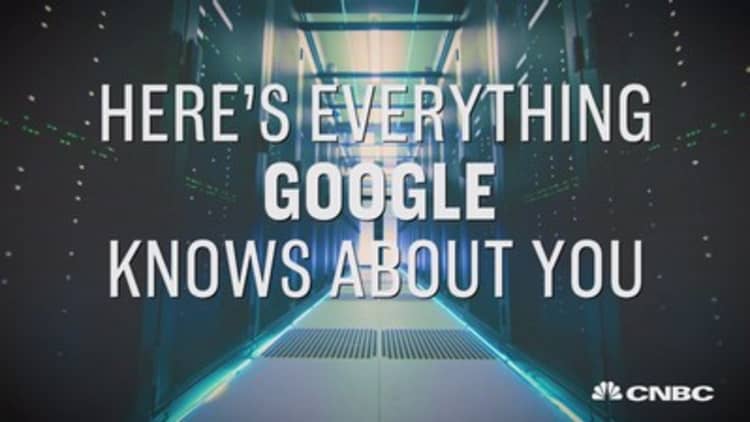Google knows an awful lot about you.
I recently showed you how much information it stores about your location, and how to turn that off. But there's a lot more, including everything you've ever searched for, every YouTube video you've ever watched, your voice recordings, the computers and phones you use to access Google and more.
Google has a tool that lets you see what information it's collecting, and it makes it easy to turn off its collection of these kinds of private information. It also lets you delete that information individually.
Keep in mind that turning some of this off can affect your experience. If Google doesn't know the YouTube videos you watch, for example, it won't know how to recommend videos that are similar to the ones you like. If it doesn't know your location, you might not be able to use some Google Maps features properly. If you don't share your voice, Google Home or the Google Assistant might not always respond when you want it to.
Here's how to use Google's Privacy Checkup tool
- First, go to https://myaccount.google.com/privacycheckup/. This is the main page you'll work from in this guide.
- If you haven't already, log in to your Google account.
- Now move through each category, such as Web & App Activity, YouTube Search History and Location History.
- Click "Manage" under each to see how Google uses your information, and turn off any section you don't want collected.
- Next, select the section named "Make ads more relevant to you."
- Turn "Ad personalization" off. This means Google won't target ads based on the interests it knows you have from using its other tools, like Search or YouTube.
- Now tap "Control what others see about you."
- Click "Edit your shared endorsement setting," and turn this off. This will prevent your reviews for places like restaurants or apps appearing in the Google Play Store or Google Maps.
- Now tap "Help people connect with you." I leave this on since I like people to be able to search for me through video chat and other Google apps, but you can turn this off here.
- Now choose "Manage your Google Photo settings." Here, you can turn off Google's ability to recognize your face. This is used if people snap pictures of you and upload them to Google Photos, which can automatically recognize friends and family and create albums. If you don't want people doing this, turn it off. I leave it on, since I like it.
- Click "Manage what you share on YouTube." I turn off everything so that people can't see my playlists or when I like or dislike a video.
- Finally, go here: https://myaccount.google.com/data-and-personalization. This lets you turn off information Google collects about how you use its services, such as YouTube search history, voice information, your location and more. I leave mine on because I'm always testing Google services and like the recommendations, but you should turn them off if you're worried about privacy.
That's it. Once you complete the steps above, you've performed a bulk of the management required to stop Google from collecting some of the data it can access while you use its services.



